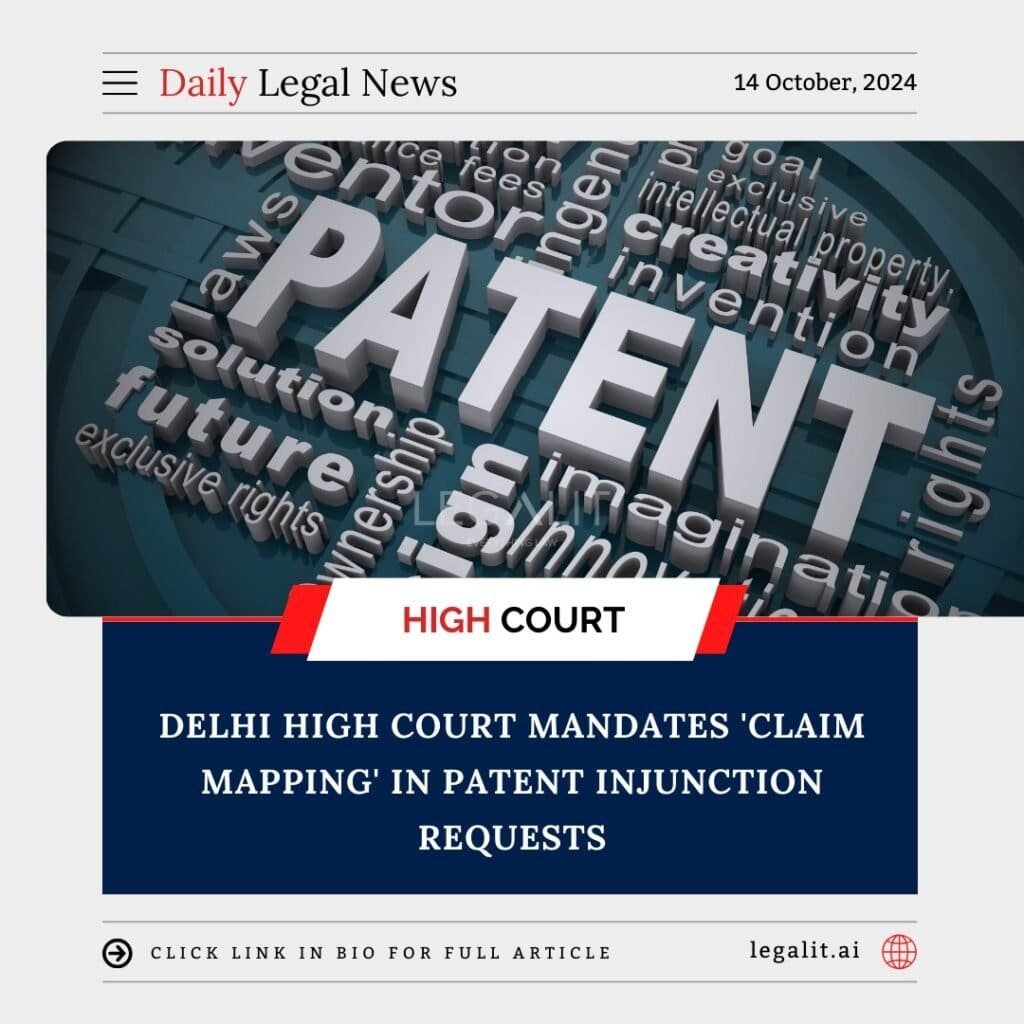
In a significant ruling, the Delhi High Court has emphasized the necessity of “claim mapping” when petitioners seek injunctions in patent cases. This decision comes as part of an effort to streamline litigation processes and enhance clarity in patent infringement disputes.
Background of the Case
The case arose from a dispute involving a patent holder seeking an injunction against an alleged infringer. The court found that the existing practice lacked a clear methodology for demonstrating how the accused product or process infringed upon the claims of the patent in question. This gap led to unnecessary delays and complexities in resolving patent disputes.
Court’s Ruling and Reasoning
The Delhi High Court ruled that claim mapping, which involves a detailed comparison of the patent claims with the allegedly infringing product, is crucial for a comprehensive understanding of the issues at stake. The court noted that without such mapping, it becomes challenging to ascertain the validity of the claims and the basis for granting an injunction. The ruling aims to provide a clearer framework for both litigants and the judiciary, ensuring that decisions are made based on thorough and systematic analysis.
Implications of the Judgment
This judgment sets a precedent that may significantly impact future patent litigation. By requiring claim mapping, the court aims to reduce frivolous claims and ensure that only well-founded cases proceed to injunction hearings. This requirement can enhance the efficiency of the judicial process, potentially leading to quicker resolutions in patent disputes.
Need for Reforms in Patent Litigation
The ruling highlights the broader need for reforms in patent litigation, particularly concerning the clarity and presentation of claims. The legal framework surrounding patents is complex, and improved practices like claim mapping could help both patent holders and defendants better navigate the intricacies of patent law.
Conclusion
The Delhi High Court’s mandate for claim mapping in patent injunction cases marks a pivotal development in the realm of intellectual property law. This ruling not only clarifies the requirements for seeking injunctions but also underscores the importance of thoroughness in patent litigation. As the landscape of patent law continues to evolve, such measures may pave the way for more efficient and equitable resolutions in future disputes.